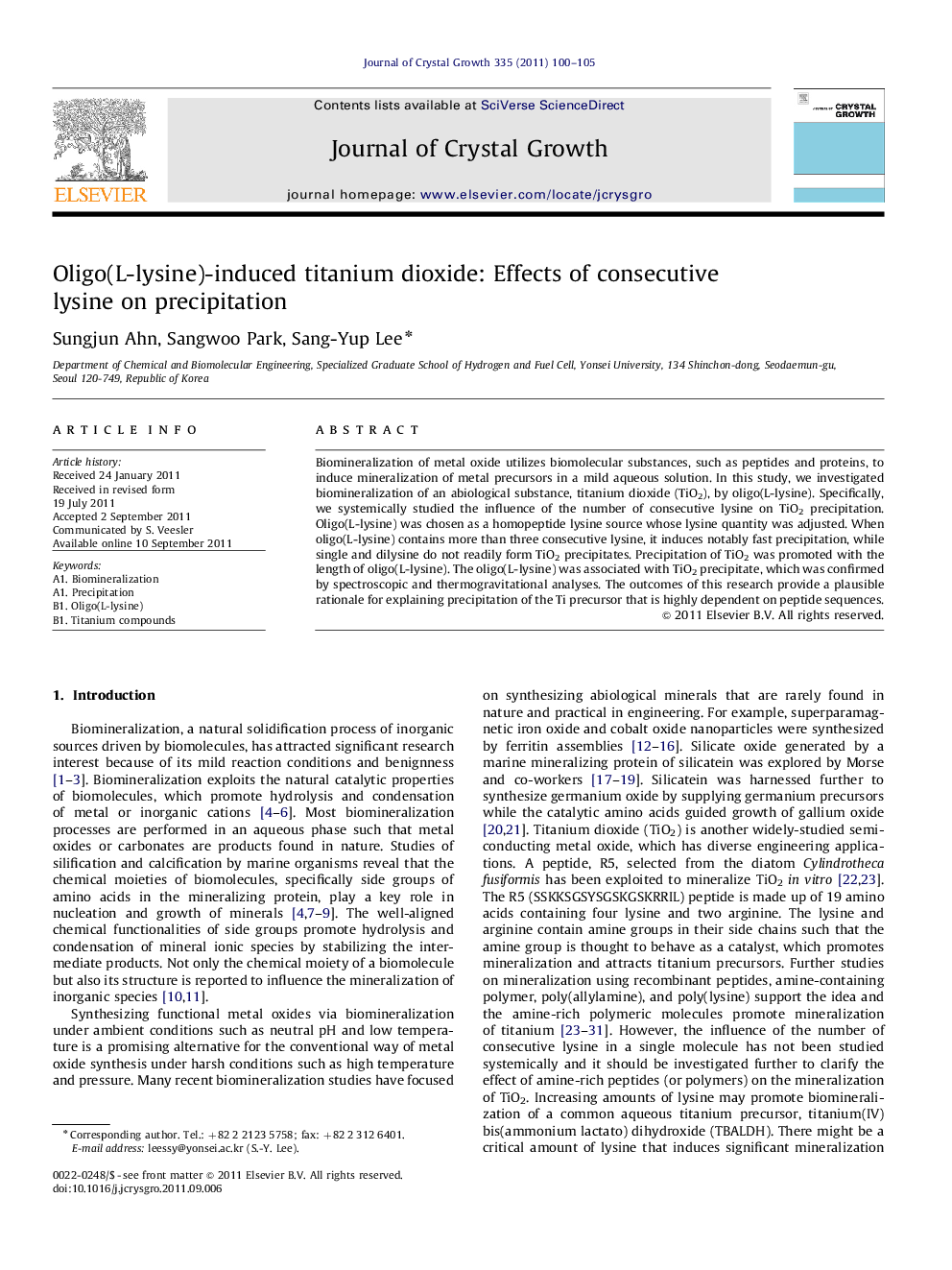| Article ID | Journal | Published Year | Pages | File Type |
|---|---|---|---|---|
| 1792113 | Journal of Crystal Growth | 2011 | 6 Pages |
Biomineralization of metal oxide utilizes biomolecular substances, such as peptides and proteins, to induce mineralization of metal precursors in a mild aqueous solution. In this study, we investigated biomineralization of an abiological substance, titanium dioxide (TiO2), by oligo(L-lysine). Specifically, we systemically studied the influence of the number of consecutive lysine on TiO2 precipitation. Oligo(L-lysine) was chosen as a homopeptide lysine source whose lysine quantity was adjusted. When oligo(L-lysine) contains more than three consecutive lysine, it induces notably fast precipitation, while single and dilysine do not readily form TiO2 precipitates. Precipitation of TiO2 was promoted with the length of oligo(L-lysine). The oligo(L-lysine) was associated with TiO2 precipitate, which was confirmed by spectroscopic and thermogravitational analyses. The outcomes of this research provide a plausible rationale for explaining precipitation of the Ti precursor that is highly dependent on peptide sequences.
► Oligo(L-lysine)-induced mineralization of TiO2. ► Rapid precipitation of TiO2 was achieved when oligo(L-lysine) is longer than three consequent lysine. ► Activity of oligo(L-lysine) to the titanium precursor increases with length. ► Association of oligo(L-lysine) with the TiO2 precipitate was investigated.
